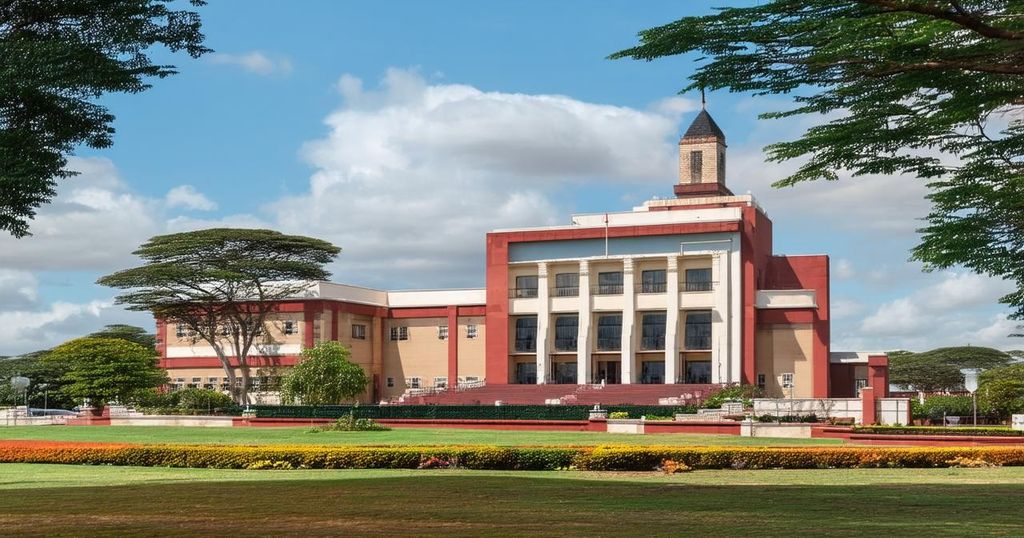Eswatini may be moving to reinstate its Israeli embassy after nearly three decades, signaling a strengthening of ties amidst Israel’s international isolation. The conversations about this diplomatic shift are reportedly at a high level, with local authorities emphasizing Eswatini’s sovereign right to choose its diplomatic partners. However, the potential move raises concerns about Eswatini’s position on Israel’s controversial actions, particularly in Gaza, and its potential impacts on relations with Arab nations.
The Kingdom of Eswatini appears poised to reestablish an Israeli embassy, a significant diplomatic development that follows their longstanding relations dating back over fifty years. Previously, Israel maintained an embassy in Eswatini, situated in the capital of Mbabane, before it was closed in 1994. Since then, diplomatic engagements have been conducted through Israel’s mission in South Africa, where relations have recently soured due to South Africa’s vocal opposition to Israeli actions in Gaza. Undoubtedly, growing international isolation faced by Israel, especially regarding its actions in Gaza and Lebanon, is influencing Eswatini’s increasing closeness with Tel Aviv. In June, Newman Ntshangase, the principal secretary of the Eswatini Foreign Ministry, disclosed that discussions are ongoing at a high level, although no formal updates have been communicated from either the Eswatini or Israeli governments. He emphasized that Israel holds sovereign rights over the location of its diplomatic missions, necessitating mutual consent with the host nation. Encouraging this shift, Percy Simelane, spokesperson for King Mswati III, affirmed Eswatini’s autonomy in engaging nations of its choice without external interference. However, the notion of reinstating an Israeli diplomatic presence in Eswatini raises concerns among local commentators, who fear it may symbolize an endorsement of Israel’s controversial policies toward Palestine. Petros Qambukusa Magagula, a former academic, cautioned that facilitating Israel’s return could imply Eswatini’s complicity in the ongoing conflict, potentially jeopardizing its relationships with Arab nations that have historically provided significant development support. Simelane dismissed these concerns, arguing that Eswatini’s non-aligned status should not affect its diplomatic choices as the country navigates its external relations. The ongoing dialogue suggests a potential diplomatic pivot, but whether this shift will materialize remains uncertain as the parties maintain silence on definitive plans for reopening the mission.
The issue regarding the potential relocation of the Israeli embassy from South Africa to Eswatini occurs against a backdrop of complex international relations, especially heightened tensions surrounding Israel’s activities in the Gaza Strip. The Kingdom of Eswatini has historically demonstrated a diplomatic affinity towards Israel, underscored by decades of bilateral relations. However, the closure of the Israeli embassy in 1994 marked a significant alteration in these ties. Currently, Israel’s increasing isolation on the world stage, particularly from nations with opposing views to its policies, raises questions about its partnerships in Africa, especially with nations like Eswatini where relations might be warming. The local government’s responses to both internal and external pressures highlight the delicate balance of power and interests at play.
As discussions about the potential reinstatement of an Israeli embassy in Eswatini evolve, the implications of such a diplomatic maneuver could reverberate throughout the region. While Eswatini asserts its sovereign rights to engage diplomatically with any nation of its choosing, including Israel, concerns persist regarding the moral and political consequences of aligning with a state facing widespread criticism for its actions in Gaza. How this situation develops will not only influence Eswatini’s diplomatic landscape but may also affect its relationships with key partners in the Middle East.
Original Source: www.middleeastmonitor.com







